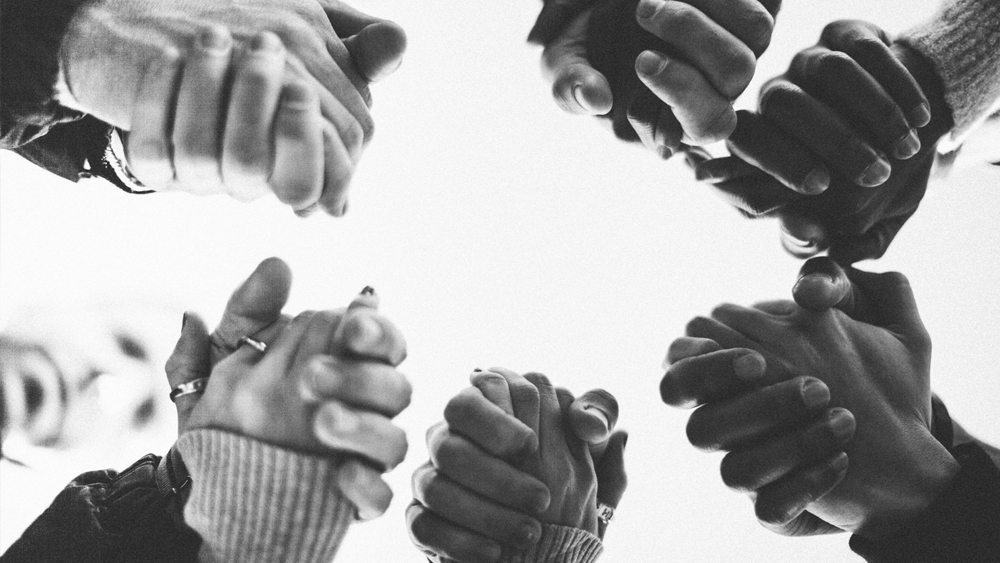From the time I was a child, I was taught that as a Black girl who would one day become a Black woman, I needed to work twice as hard to be considered half as good. I was taught that as a girl who would one day become a woman, I couldn’t show too much emotion in a world where women were often accused of being overly emotional. This well-meaning guidance proved destructive.
For many years, I went through life thinking I had to wear a mask that conveyed that I had it all together. For many years, I kept quiet when I should have shouted, or shouldered unreasonable loads when I should have asked for help. In time, I learned that pretending to be perfect and gleefully taking the responsibility that could have been parceled out to three or more people was unsustainable. As I have gotten older, I have learned that I do not need to be everything to everybody. I do not need to know everything at every single time. Most importantly, I have learned that it is okay to ask for help.
This message is being seared into my consciousness on so many levels. As a single, working mother, I am learning that it is impossible to parent in isolation. I can be a better parent with the help of the young women, grandparents, grandmother-figures, and others who have come around me to help me care for and raise my daughter.
In professional settings, this lesson of vulnerability and interdependency is also showing up powerfully.
A couple weeks ago, I was scheduled to lead a training and facilitate a two-day retreat in the space of just two days. The first event was with a religious reproductive rights client. The second was for a newer group and due to the subject matter, and the newness of the relationship, I was downright nervous.
I was nervous that there would be resistance, that attendees wouldn’t be open, and that I didn’t have enough content to fill the training. Most significantly, I wondered whether I was enough — whether I was the right person to lead the training in the first place.
As a woman prone to prayer, I kept thinking I needed someone to join me in prayer to help ensure the success of my events. In the days before the training, I asked God, “Who should I take this to in prayer?” At the conclusion of the two-day retreat with my faith-based client, I kept hearing God telling me to ask them to pray with me before I headed to the training with the second client. Then I started wondering, “Is it professional for a facilitator to ask her clients for prayer? Shouldn’t I pretend to have it all together?”
My internal angst was far less than the compulsion to ask for prayer, so I went ahead and made my request. What happened next genuinely shocked me.
As soon as I uttered the words, “Can you all pray…” one activist and organizer said, “Yes, I keep materials for an altar in my bag!” She whipped out a napkin, a candle, a lighter, and sage, and created an altar on the conference room table. This has never ever happened to me, and I felt like I was in a twilight zone.
Another sister, a reverend, said with excitement, “Yes! I keep blessed oil in my bag.” She immediately anointed me with frankincense oil. I felt the way David must have felt when Samuel anointed him king in 1 Samuel 16. While she didn’t have a horn of oil (she kept her oil in a small vile), she put enough on me that I smelled like frankincense for about a week. The same reverend then said, “I also make and travel with prayer beads” and gave me my own custom prayer beads.
Then an older white woman, who up until this point had been very quiet at the other end of the table, jumped up and rushed over and gave me two bracelets. One said, “Don’t Give Up” and the other bracelet said, “You Matter.” Then she gave me a rock with an encouraging note written on it.
I pinched myself and asked, “Is this really happening?” By this point, the group was ready to begin praying. They prayed a prayer of faith that not only sustained me, but also reinvigorated me. I felt that everything I poured out in that session, and more, was replenished to me.
When the prayer time was over, my client broke out in song asking God to surround me. If I didn’t have the training afterwards, I probably would have gone home, written in my journal, and cried over the provision of God.
I thought to myself, “Who are you people? A reproductive justice organization, a prayer brigade, or all of the above?!?”
I left that meeting with tears flowing, but grateful that I was willing to be vulnerable and ask for help. I left fully reminded of the need to depend on others. Most importantly, I left in a better mindset that prepared me to show up well for my subsequent training. That training went off swimmingly. None of what frightened me materialized.
A couple weeks after the training, I shared the experience with Katie Pryor, a colleague who focuses on maternal health. She reminded me: “As strong women, many of us are taught not to ask for help. But it is okay to acknowledge the need for help. Not asking for help when we need it sets us up to suffer and suffer more than we need to. Christians often say, “‘God won’t put more on you than you can handle.’ But God also gave you a mouth so you could ask for help.”
I am using mine, and I encourage you to use yours.

